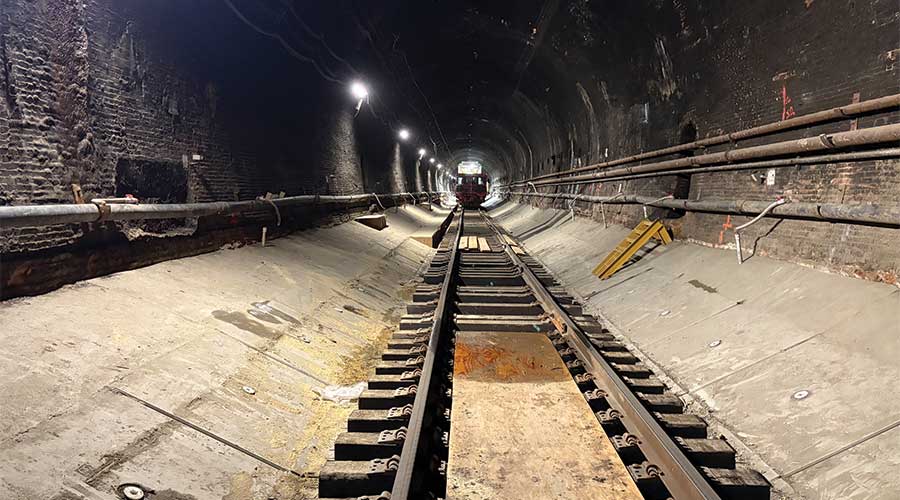Stay updated on news, articles and information for the rail industry
11/7/2014
Rail News: Passenger Rail
Caltrain's modernization project to take longer, cost more
Caltrain's modernization project is being delayed up to 18 months and the cost is increasing from $1.45 billion to between $1.7 billion and $1.76 billion, the Peninsula Corridor Joint Powers Board was informed yesterday.
In a presentation to the board, which owns and oversees Caltrain's service, the cost for electrification of the rail system now is projected to cost between $1.47 billion and $1.5 billion. The previous projection, originally calculated in 2008, was $1.2 billion. The new projection boosts the cost for the total "CalMod" program, Caltrain officials said in a press release.
The projected cost of the new advanced signal system, CBOSS PTC, which is part of the CalMod program, is unchanged at $231 million, they said.
The board also received a new projection that electrified service will begin between winter 2020 and spring 2021. The original projection for the electrified service to begin was winter 2019.
"With a project of this size and significance, we expect the cost and schedule projections to be adjusted, especially when the previous projections are six years old," said Adrienne Tissier, a member of Caltrain's board and the Metropolitan Transportation Commission, which is helping to fund the project. "This update allows the project to move forward with environmental clearance so we can get to work building a system that accommodates growing ridership demand."
The electrification project will convert the rail system from a diesel-based service to an electrified system with performance advantages that will accommodate rapidly growing ridership demand.
The higher cost is a result of inflation, updated industry information, additional engineering and an analysis of challenges associated with building the project while maintaining rail service. The environmental process for the electrification project is expected to be completed in January, with construction slated to begin in 2016.
Contact Progressive Railroading editorial staff.


 CSX Focuses On Two Major Projects, More Fluid Network
CSX Focuses On Two Major Projects, More Fluid Network
 Introducing The Rising Stars Of 2025
Introducing The Rising Stars Of 2025
 From The Editor: Of Tariffs And A ‘Trade Storm’
From The Editor: Of Tariffs And A ‘Trade Storm’
 Women of Influence in Rail eBook
Women of Influence in Rail eBook
 railPrime
railPrime







